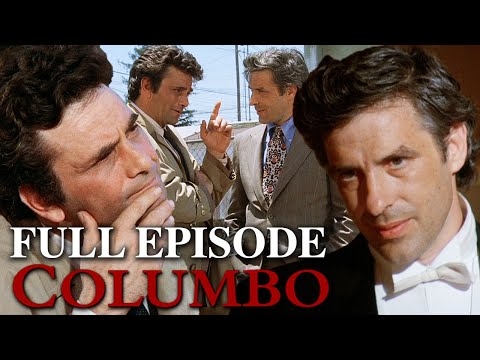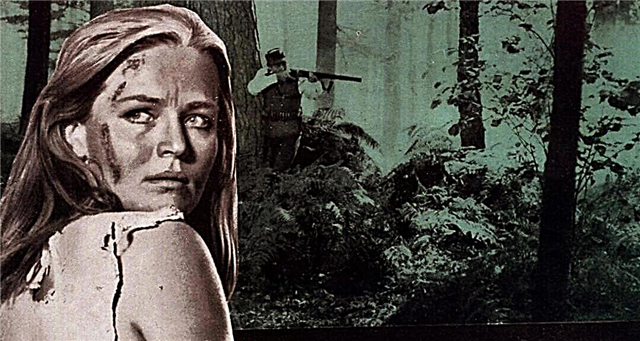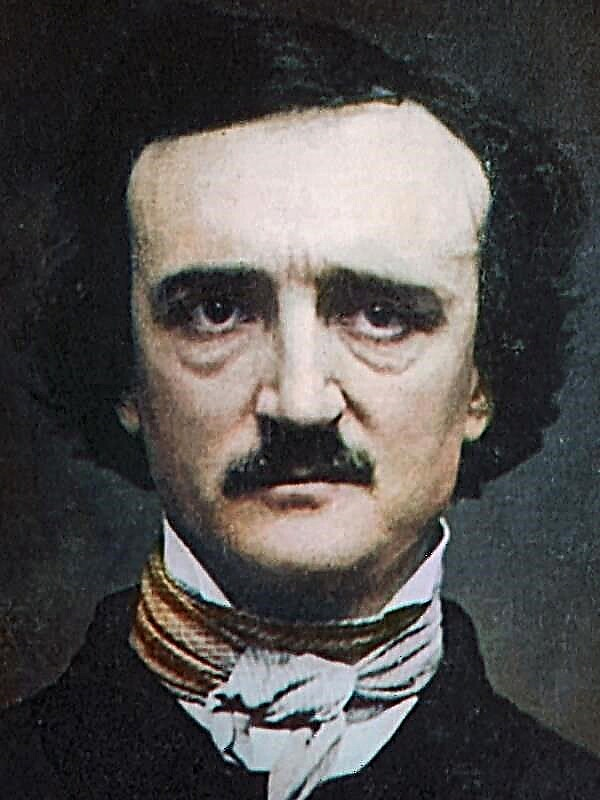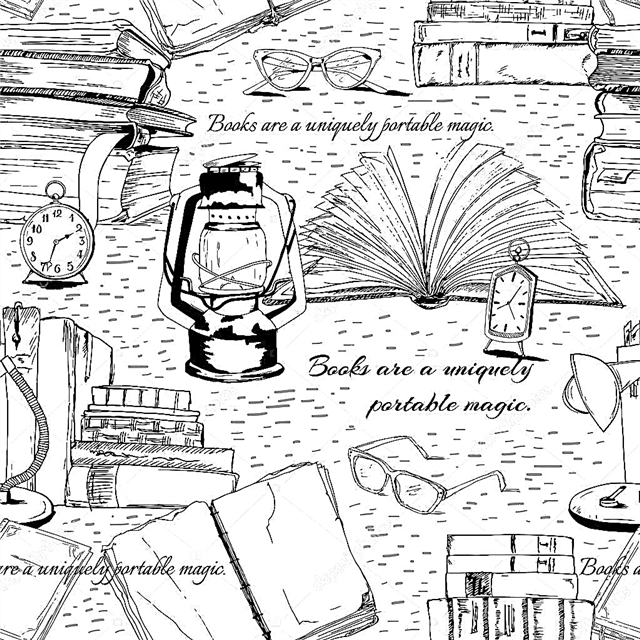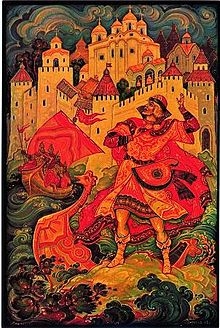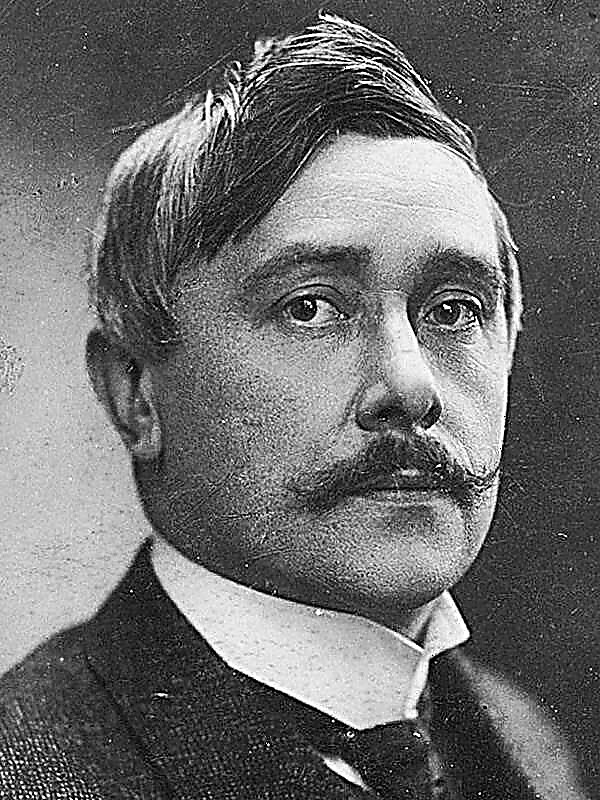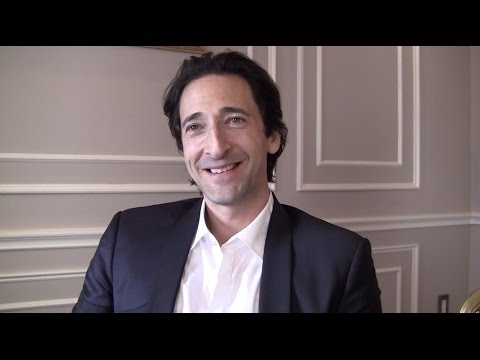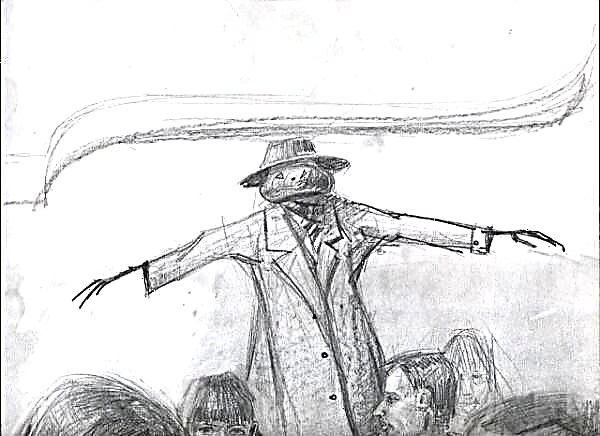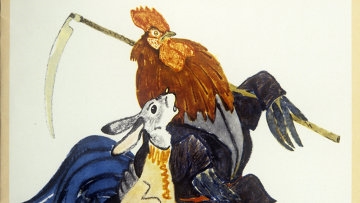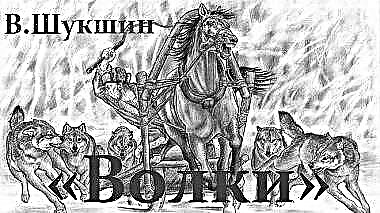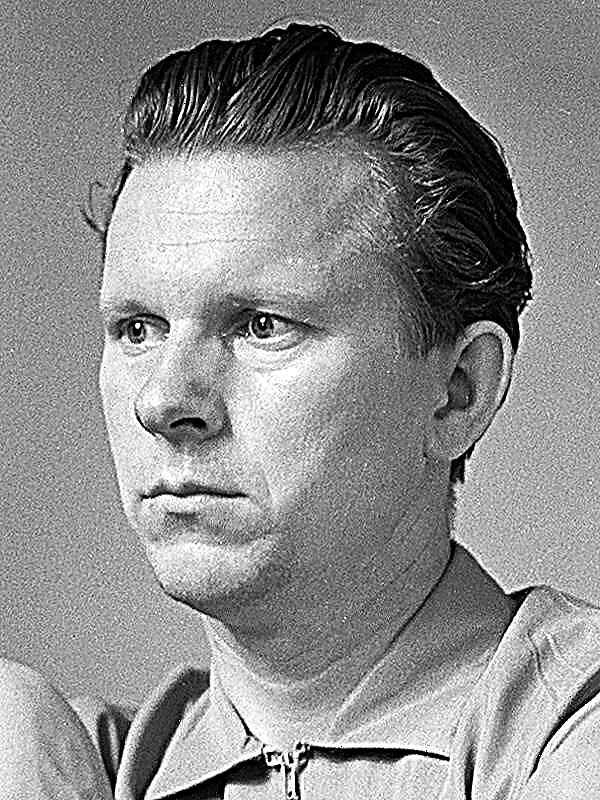The action takes place immediately after the establishment of the July monarchy.
Nineteen-year-old Opac Dumont, the son of a small provincial official, received the title of Bachelor, arrives in Paris. Parents deny themselves everything in order to provide their son with decent content and give him the opportunity to break into people.
Opac enters the Faculty of Law, quickly feels an aversion to law, but is not going to engage in any other science, because he believes that only the profession of a lawyer is a reliable step on the path to fame. Opac is beautiful, graceful and relaxed, but "impeccable taste is not always manifested in his clothes and manners." A friend of his claims that he "poses even in front of flies." The character of Horace is a mixture of skillfully combined pretense and naturalness, so it is impossible to distinguish where one ends and the other begins.
Opac meets Theophile, a medical student, the son of Count de Mond. Friendship with a young aristocrat is flattering to Horacu, especially since Theophilus often lends him money. However, he is disappointed that the friend of Theophilus Eugénie is just a grisette. He is even more surprised at Teofil’s friendship with buoy student Jean Laravigner, the owner of a “hoarse voice ripped off in the early days of August 1830 by the singing of the Marseillaise, and with the son of the village cobbler Paul Arsen. A talented artist, Paul is forced to quit painting and go to work as a garrison in a cafe to feed his family, which is why Opac despises him even more.
For a long time, since childhood, Paul has secretly been in love with the beautiful Mrs. Poisson, the wife of the owner of the cafe, where Teofil and his friends often gather. But Mrs. Poisson is actually a worker Marta, who was born in the same town, on the same street as Paul Arsene. At one time, the salesman Poisson seduced her, took her to Paris, but did not marry her, which does not prevent him from being jealous and turning Martha's life into hell. Unable to stand it, she flees from her hated lover, finds temporary refuge with Teofil and Eugenie, and then, settling in the apartment next to them, opens a sewing workshop with Eugenie. Martha does not suspect that Paul through Eugénie secretly supports her with money so that she does not need anything.
Opac decides to become a writer. He has ready sketches of several novels, a poem, a ballad, a vaudeville and even a political pamphlet. But writing is also work, and Opac just does not like to work. Broken down by his failures, he reclines all day on the balcony of Theophilus, smoking a pipe and dreaming of great love.
Gradually, Horace begins to “find charm in Martha’s company” and once she declares her love. Upon learning of this, Eugénie, worried about her friend, invites Theophilus to bring Oras into the light, "in order to distract him from love or to be convinced of its strength."
Theophile leads Horace to Countess de Chailly, an old friend of his father, where he shows himself to be a smart and original conversationalist, albeit too passionate and noisy. The Countess’s daughter-in-law, the Viscountess de Chailly, makes an indelible impression on Horace. Here is a woman whose love he always dreamed of! But when Horace finds out that Arsen is in love with Martha, Martha’s passion flares up with renewed vigor. But at the same time, he was “ashamed of his love”, since his rival is the son of a shoemaker. Martha is desperate because she loves Horace.
Eugenie is trying to prove to Horace that he is not ready for family life, but Horace is convinced that his feelings are so passionate and ardent that everyday little things can not prevent them from being happy with Martha.
Tormented by baseless jealousy of Paul, Horace plagues Martha with unjust reproaches. Proving her love, Martha spends the night with Horace.Leaving him in the early morning, she is amazed to see Paul waiting for her. Without reproaching her for anything, he escorts her home. Martha understands that Paul’s love is cleaner and more noble than Oras’s passion. But she cannot resist feeling and chooses Horace.
Horace likes to rule over her lover. He demands that Martha drive out Paul Arsen, who, by old friendship, sometimes comes to visit her. Martha begs Paul to disappear from her life, and the unfortunate lover submits. Having rented a room in the quarter remote from the house of Theophilus and Eugenie, Horace takes Martha away, forbids her to work, and sets her up against former friends.
Horace considers his beloved “as if through the prism of various female images known to him from books read.” Therefore, the satiety of her love for him is inevitable, which happens when he encounters everyday difficulties. Creditors besiege him, he is all in debt. Marta offers to start working, and to start laying her new shawl. Horace is indignant, but already the next morning, hungry, finds such a solution reasonable. The owner of the room, which they owed for two months, throws a scandal at Horace. The noise from the next apartment appears Laravinier. He vouches for Horace in front of the owner. Horace borrowed money from Laravinier. Despite the fact that Martha takes work at home, financial difficulties are increasing.
Horace continues to sit back, feeling that "he has become even harder to work than before." Accusing the thrifty sweetheart of "petty stinginess", he squanders both the money she earned and the money sent by her parents. He is already "not averse to leaving Marta." She is even more affirmed in her love for him.
Laravinier takes an active part in the republican organization. Paul Arsen also enters into it, still loving Martha and comforting himself with the fact that he “has the courage to lay his head in the name of the republic,” Horace also begins to believe in the success of the Laravinier movement. The role of the conspirator captures him entirely. He likes to “worry Martha,” alluding to “the danger he will soon be exposed to.” In the future republic, he sees himself as a "great speaker or influential publicist."
The cholera epidemic is breaking out. Horace is getting sick. Martha searches for Theophilus and begs to save Horace. But the next day, Horace is recovering. And Theophilus is already worried about Martha: he suggests that she is pregnant. Horace harasses Martha with reproaches, inspires her that he feels "an irresistible aversion to babies." Martha disappears, writing to Horace that "he is not threatened with the boring cares and responsibilities of his father."
Laravinier informs Horace about the start of the performance. At the same time, the father informs Oras that his mother is seriously ill. Relieved to find a good reason to leave, Horace goes home.
Theophile is invited by the family doctor to the Countess de Chailly in her family castle. Learning about this, Horace, returning to Paris, calls in to visit a friend and falls under the spell of the Viscountess. They become lovers. It seems to Horace that he conquered the proud aristocrat with his mind and brilliant literary abilities. In fact, an experienced coquette plays with him like a cat with a mouse.
Soon Horace begins to suffer from the fact that "his victory caused so little noise." He talks about his connection with the Viscountess Theophilus and Eugénie, several other acquaintances. The Viscountess breaks with him.
In Paris, the uprising. June 5, 1832 Laravinier and Arsene fight on a barricade near the monastery of Saint-Merry. Rugged with bullets, Laravinier falls; Paul Arsen, all wounded, escapes persecution and accidentally ends up in the attic, where Martha lives with her child. A young woman nurses him. After recovering, Paul stays with Martha to help her out of poverty. He gets a prompter's seat in the theater, where he sews costumes for Martha. After some time, Paul becomes an indispensable person in the theater - he draws magnificent scenery. Martha is unexpectedly given the main role, and she has an extraordinary success.But she still remains a simple and noble woman. The devotion and love of Fields finally evokes a reciprocal feeling in her soul. Paul recognizes her child. A young couple visits Theophilus and Eugénie, who have long considered both dead. The doctor and his girlfriend are sincerely glad for the success and happiness of friends.
Horace, having received money from a rich friend, wins a huge amount and immediately begins to live in a big way. Careless generosity and “a dandy costume wonderfully concealing a plebeian origin” open the doors of secular salons in front of Horace. He writes and publishes a novel with “known success”, signing it with the name du Monte. At the same time, it does not even enter his head to repay debts.
Good luck turns away from Horace. He writes a second novel, but he is very mediocre. He fails to marry a rich widow. He gets into debt. In the end, his new secular friends turn away from him. Horace learns that the Viscountess contributes to his failures to a large extent, who did not forgive him for talking about their connection. Horace is ruined, defeated in the light. Having found shelter with Theophilus, he accidentally finds out that Martha and Paul finally found their happiness, and jealousy flashes in him: he is still convinced that Martha loves him alone.
Theophile, fearing for the happiness of the Arsen couple, invites Horace to go to Italy and supplies him with money. On the day of departure, Horace comes to Martha, rushes to her feet and, after a passionate explanation, invites her to run with him. Martha refuses and even convinces her that the child is not his, but Fields. Horace grabs a dagger and threatens to kill Martha, himself and the child. Waving a dagger, he slightly injures Martha, and then tries to stab himself. He is stopped by Laravinier, who miraculously survived during the uprising,
Fearing accusations of murder, Horace escapes from Paris without taking any things or money. After a while, he sends Theophilos an apology letter asking him to send a purse and a suitcase.
In Italy, Horace did not succeed in anything. He writes a drama, which is booed at the theater, is hired by a child educator, but he is quickly fired for trying to care for their mother, he writes several unsuccessful novels and uninteresting articles. Finally, returning to his homeland, he graduates from law and “works hard to create a clientele for himself” in his province.

